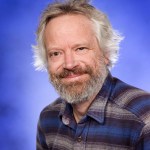This guest post is by Brookhaven Lab physicist Steve Kettell, the Chief Scientist for the U.S. Daya Bay Neutrino Project in southern China. Kettell received his Ph.D. in 1990 from Yale University and is the leader of Brookhaven's Electronic Detector Group.
Steve Kettell
Neutrinos are downright weird!
Produced in prodigious numbers in the sun, supernovae, nuclear reactors and particle accelerators, neutrinos are extremely hard to detect because they hardly interact with other material at all.
If we think about photons from the sun hitting blacktop during the summer, it is quite obvious…
Advertisment
